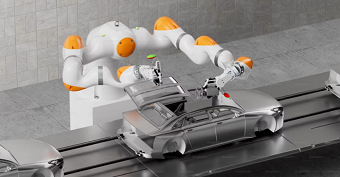Introduction
Afruimwagens Have you ever wondered how cities keep themselves clean despite the tons of garbage produced every single day? The secret often lies in efficient waste collection systems—and one such system relies on Afruimwagens. These specialized waste collection vehicles play a vital role in keeping communities clean, sustainable, and organized.
History of Afruimwagens
Waste collection isn’t a new concept. In ancient times, people simply discarded waste in open areas or rivers, leading to serious health issues. With industrialization, the volume of waste increased, forcing societies to adopt structured waste disposal systems. That’s where the idea of Afruimwagens, or “clean-up vehicles,” came into play. From horse-drawn carts to today’s automated trucks, Afruimwagens have undergone a massive transformation.
Definition and Meaning of Afruimwagens
The word “Afruimwagens” is of Dutch origin, directly translating to “clean-up wagons” or waste collection vehicles. These are trucks specifically designed to gather, transport, and dispose of waste from homes, industries, and public areas. They are essential in European countries where strict regulations ensure proper waste management.
How Afruimwagens Work
Afruimwagens typically follow a step-by-step process:
-
Collection of waste from households, commercial spaces, and public bins.
-
Sorting of general and recyclable waste.
-
Transporting to landfills, recycling centers, or incineration plants.
Modern Afruimwagens are fitted with compactors, allowing them to store large amounts of waste before heading to disposal sites.
Types of Afruimwagens
There isn’t just one kind of Afruimwagen. Some common types include:
-
Standard collection vehicles – for everyday household waste.
-
Recycling trucks – equipped with multiple compartments for paper, plastics, and metals.
-
Hazardous waste Afruimwagens – designed to handle medical or chemical waste safely.
-
Industrial vs. residential models – larger, more robust trucks serve factories, while smaller ones cater to neighborhoods.
Technological Advancements in Afruimwagens
Technology has made Afruimwagens smarter and more efficient. Many now come with:
-
GPS tracking for route optimization.
-
Smart sensors to detect fill levels of bins.
-
Automation systems for quick and safe handling of waste.
-
AI integration to improve collection efficiency and reduce fuel consumption.
Benefits of Using Afruimwagens
Why are Afruimwagens such a big deal? Here are the main reasons:
-
Efficiency: They can collect tons of waste in a single trip.
-
Environmental benefits: Reduced littering and cleaner cities.
-
Cost-effectiveness: Less labor and fuel wastage compared to traditional methods.
Afruimwagens and Recycling
Recycling is one of the cornerstones of sustainability, and Afruimwagens make it easier. Equipped with separate compartments, these vehicles ensure recyclables don’t mix with general waste. They directly support the circular economy, where resources are reused instead of wasted.
Environmental Impact of Afruimwagens
Afruimwagens are more than just trucks—they are guardians of the environment. By ensuring waste reaches the right facilities, they:
-
Reduce the volume of landfill waste.
-
Lower greenhouse gas emissions.
-
Encourage citizens to adopt eco-friendly habits.
Challenges Faced by Afruimwagens
Of course, Afruimwagens aren’t free of challenges. Some of the main issues include:
-
High maintenance costs due to complex machinery.
-
Operational challenges like traffic delays and improper waste segregation.
-
Public awareness: Without citizen cooperation, even the best systems struggle.
Afruimwagens in Europe
In the Netherlands, Afruimwagens are highly regulated and efficient, serving as a model for other nations. Germany uses specialized recycling vehicles to maintain its reputation as one of the best recyclers in the world. Belgium, too, has adopted Afruimwagens with smart technology, ensuring compliance with European Union waste directives.
Afruimwagens vs. Traditional Waste Disposal Methods
Traditional waste methods often meant dumping garbage in open spaces. Afruimwagens changed the game by bringing structured collection, advanced transportation, and recycling into the equation. The result? Cleaner, safer, and healthier cities.
Future of Afruimwagens
The future looks bright for Afruimwagens. Expect to see:
-
Electric and hybrid models to reduce carbon footprints.
-
AI-powered collection systems predicting waste patterns.
-
Integration with smart cities, where bins signal Afruimwagens when they’re full.
Tips for Communities Using Afruimwagens
Communities play a crucial role in waste management. To get the best results:
-
Segregate waste properly into recyclables, organic, and general waste.
-
Reduce household waste by reusing and composting.
-
Work with municipalities to support recycling initiatives.
Conclusion
Afruimwagens are more than just vehicles—they are the backbone of modern waste management. From reducing landfill pressure to promoting recycling, they contribute significantly to building cleaner and greener cities. As technology evolves, Afruimwagens will only become more efficient, eco-friendly, and essential for sustainable living.
FAQs
1. What does Afruimwagens mean?
Afruimwagens is a Dutch term meaning “clean-up wagons” or waste collection vehicles.
2. Are Afruimwagens eco-friendly?
Yes, especially modern models that reduce emissions and promote recycling.
3. How do Afruimwagens support recycling?
They have compartments for sorting recyclable materials like plastics, paper, and metals.
4. Are there electric Afruimwagens?
Yes, many European cities are adopting electric and hybrid Afruimwagens for sustainable waste collection.
5. How can communities benefit from them?
By ensuring proper waste segregation, communities enjoy cleaner surroundings and better recycling outcomes.

